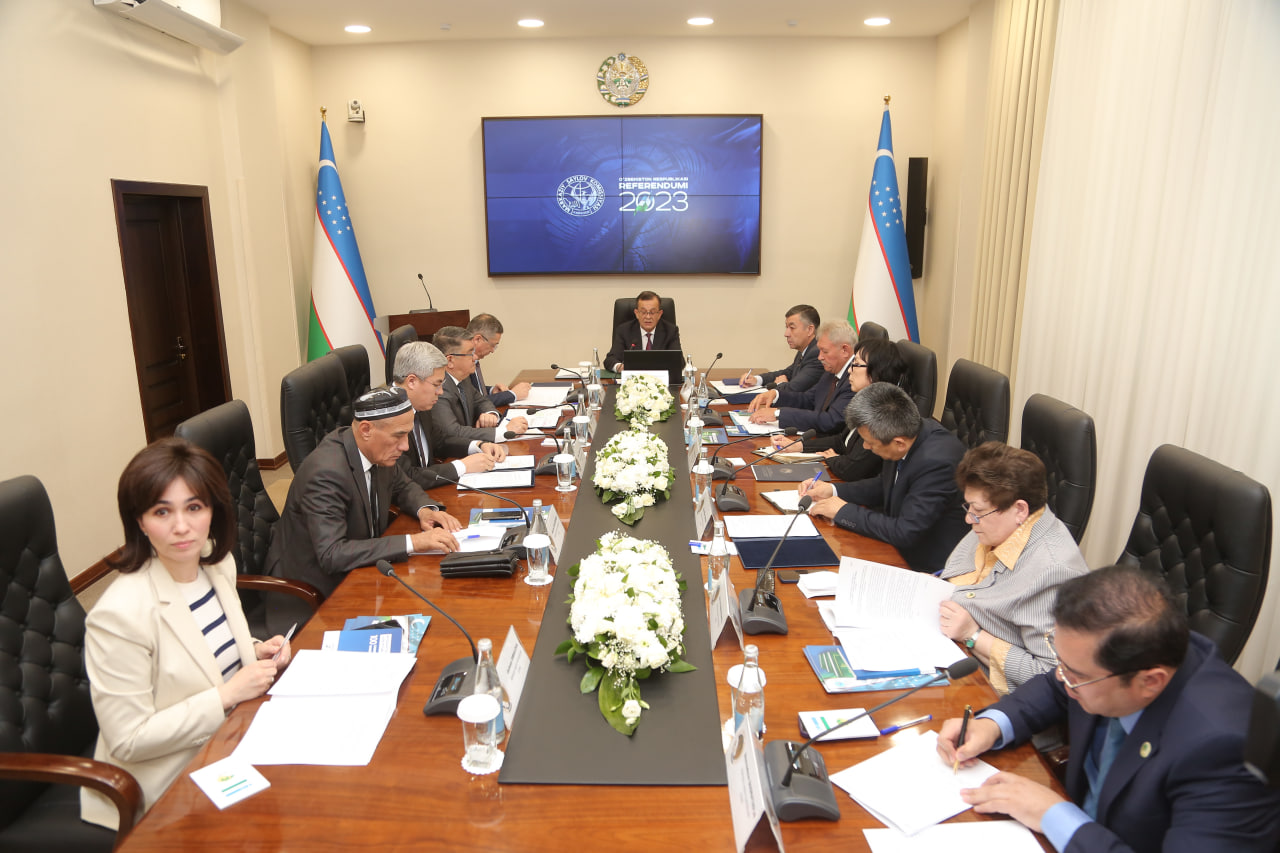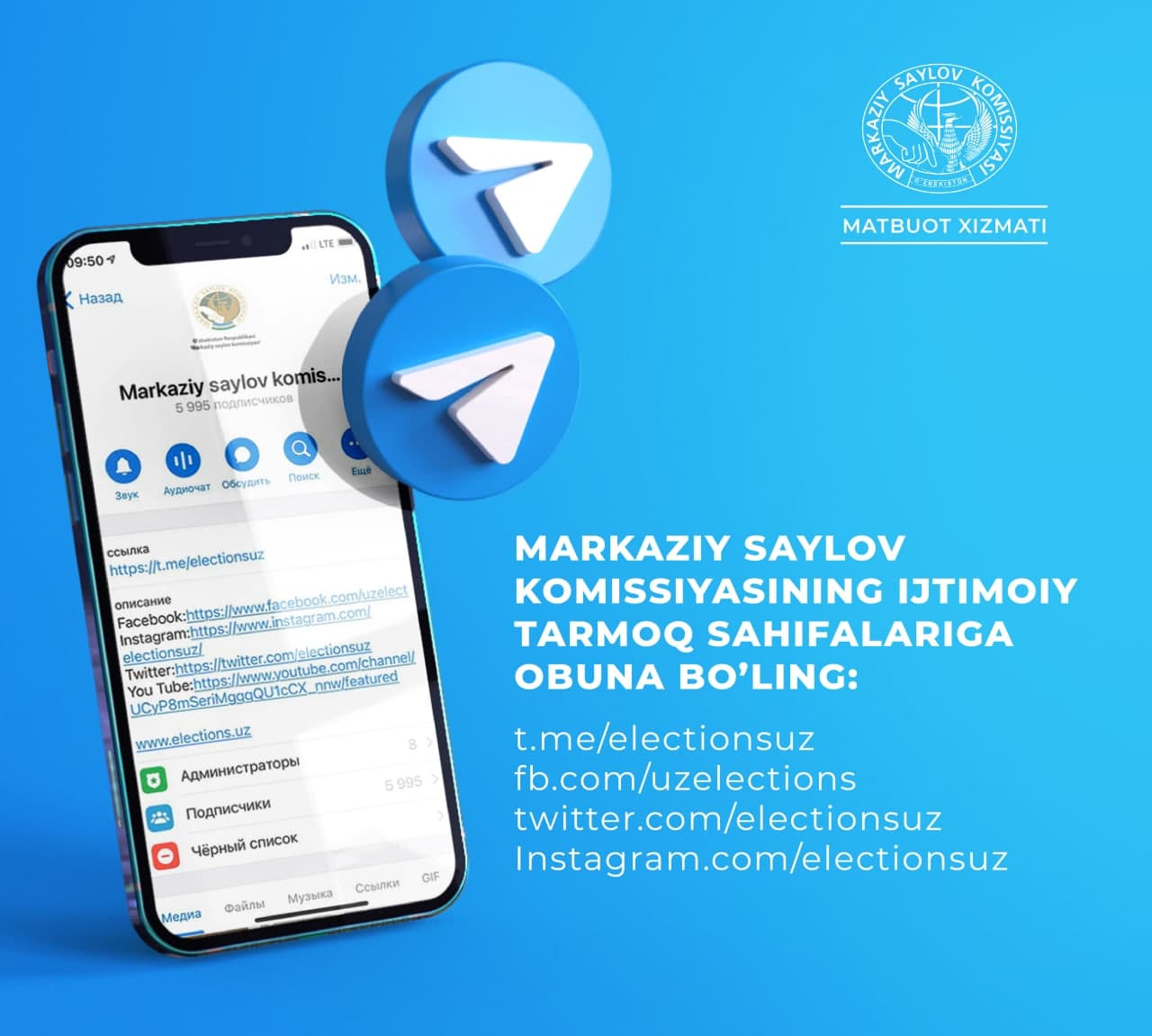 3909
3909
Large-scale reforms carried out over the years of independence laid a solid foundation for national statehood and sovereignty, ensuring the rule of law, human rights and freedoms, interethnic harmony and religious tolerance in society, created decent living conditions for the population and the realization of the creative potential of citizens.
In order to radically increase the effectiveness of the reforms, create conditions for the comprehensive and accelerated development of the state and society, implement priority directions for the modernization of the country and liberalize all spheres of life, an Action Strategy was adopted in five areas of development of the Republic of Uzbekistan in 2017–2021.
Over the past three years, during the period of strategic reform of the country, strong legislative foundations have been created that ensure the free exercise of the important political right of citizens - the right to participate in elections.
Elections are an integral attribute of a democratic state of law and a strong civil society, it is the free expression of the will of the people, the main form of citizen participation in managing the affairs of the state and society. Within the framework of a democratic electoral system, citizens elect persons they consider worthy to state authorities, express their attitude to them and in this way participate in the implementation of public administration.
One of the stages of the electoral process is the election campaign. It is during the election campaign that the candidates for deputies of the Legislative Chamber of the Oliy Majlis and political parties acquaint voters with the main directions and essence of their election platform, plans for the future in order to convince voters to vote for the candidate. Accordingly, the number of votes cast depends on how actively and efficiently the election campaign is organized.
Campaigning is also an important means and opportunity for the manifestation of personal qualities, knowledge and potential of candidates. Therefore, in our country, as in all democracies, special attention is paid to this stage of the election campaign.
The procedure for campaigning is regulated by the adopted Electoral Code, which includes the essence and significance of campaigning, types, forms and methods of campaigning, including through meetings with voters and the dissemination of campaign materials.
In particular, according to Article 44 of the Election Code, election campaigning is carried out during the election campaign and is aimed at encouraging voters to vote for a candidate or political party. It starts the day after the registration of candidates for deputies. Campaigning on election day and the day before the start of voting is not allowed.
In the same article, taking into account universally recognized principles and norms of international law, there are some restrictions on campaigning. In particular, campaigning is not allowed, accompanied by the provision to voters free of charge or on preferential terms of goods, services (other than information), as well as the payment of funds. In addition, the dissemination of false information, as well as information discrediting the honor and dignity of candidates, is prohibited.
The main objective of the Constitution of the Republic of Uzbekistan and the Election Code is to ensure healthy competition based on political pluralism, that is, freedom and diversity of opinion. This is achieved by creating equal opportunities and guarantees for all candidates to wage political struggle in the conditions of justice, openness and publicity.
One of the important success factors for candidates from political parties in the elections is their ability to select the most effective methods of campaigning.
Article 45 of the Election Code of the Republic of Uzbekistan enshrines the types, forms and methods of campaigning. According to this article, campaigning is carried out in the form of disseminating information about the program and (or) the election platform of a political party with an appeal to vote for its candidates for deputies, dissemination of information about the candidate with an appeal to vote for him. Also, campaigning can be carried out in the form of public debates, discussions, press conferences, citizens ’meetings, interviews, speeches, posting clips in the media.
In addition, election campaigning is carried out through the media, telecommunications networks, the world’s Internet information network, through the production and distribution of printed, visual, audiovisual and other campaign materials (posters, leaflets and other materials) and through meetings with voters. It should be noted that during the period of agitation, other types, forms and methods of its implementation, not prohibited by law, may be used.
The media play a very important role in the conduct of the election campaign. The legislation attaches particular importance to ensuring equal conditions for candidates for deputies and political parties. For example, article 46 of the Code guarantees campaigning through the media. During the campaigning, equal conditions of access to the state mass media are ensured by free provision of the same broadcast and print space.
In the state media, broadcast or print space may also be allocated on a paid basis. In addition, the terms of payment for broadcast, print space, determined by the media and other requirements should be equal and the same for everyone. The procedure, volume and time of using the media for agitation is determined by the relevant election commission in agreement with political parties.
Campaign materials can be printed, visual, audiovisual and other types made in the territory of the Republic of Uzbekistan. Candidates for deputies and political parties are provided with equal conditions for the unhindered release and distribution of printed, visual, audiovisual materials, phonograms, electronic versions of printed materials and other campaign materials.
It should be noted that printed, visual, audiovisual and other campaign materials must contain the name, location (mailing address) and other information about the legal entity (last name, first name and patronymic of an individual) that produced the campaign materials, the name of the legal entity (last name, first name and patronymic of an individual) who ordered campaign materials, as well as information on the circulation, date of issue of campaign materials.
Particular attention should be paid to campaigning through meetings with voters. In this case, there is direct communication of candidates for deputies from political parties with voters. Candidates for deputies and political parties are also provided with equal conditions for campaigning through meetings with voters.
Meetings with voters are held by candidates for deputies, political parties independently. A district or precinct commission shall be notified of the place and time of meetings with voters, which shall inform voters in advance of this.
It is important to note that state and economic administration bodies, local government bodies, public associations, as well as citizens' self-government bodies are obliged to provide equipped rooms for holding meetings for free, to assist in obtaining the necessary reference and information materials. It should also be noted that the candidate or his agent has the right, together with another candidate or his agent, to hold meetings with voters or to participate in meetings with voters organized by another candidate.
As you can see, the legislation of the Republic of Uzbekistan provides the necessary conditions for an equal and open election campaign, which is a direct reflection of the universally recognized principles and norms of international law.
Kamola Aliyeva,
Senior teacher of the Tashkent State University of Law






















